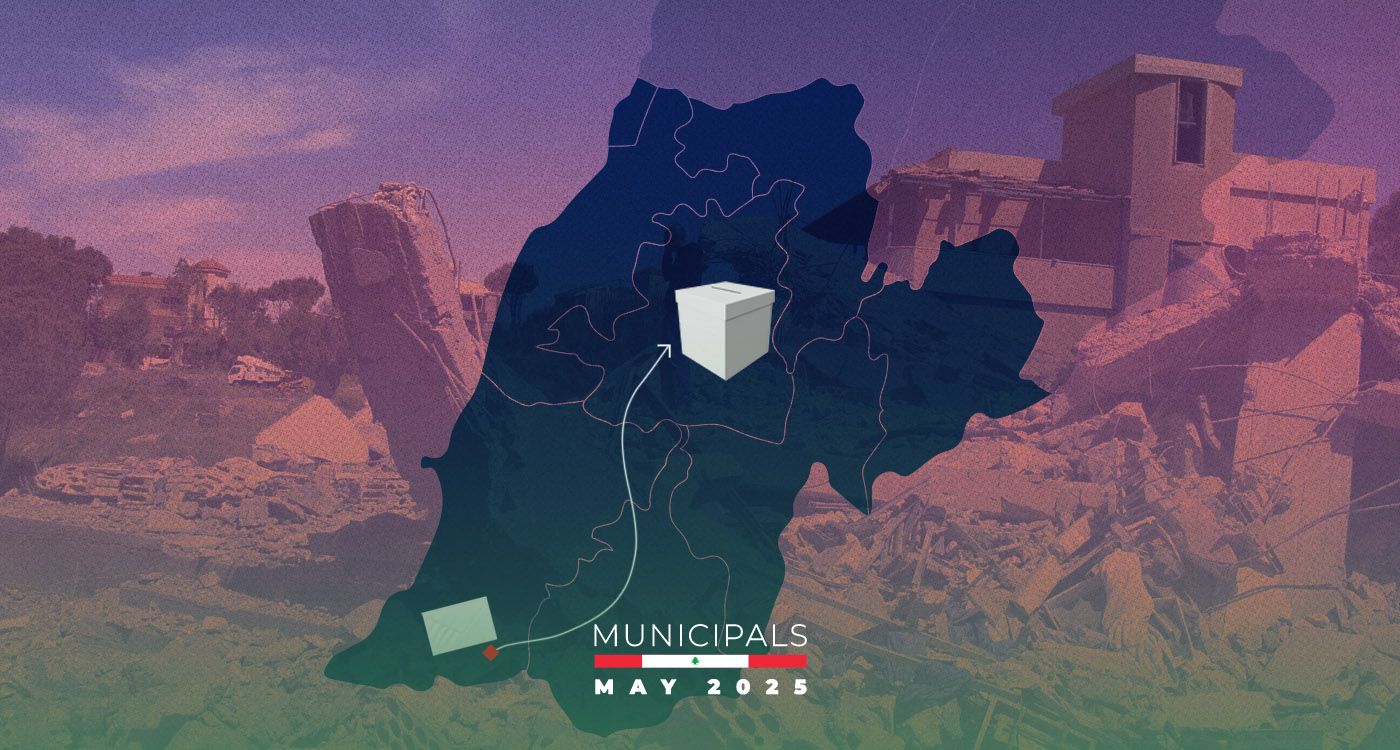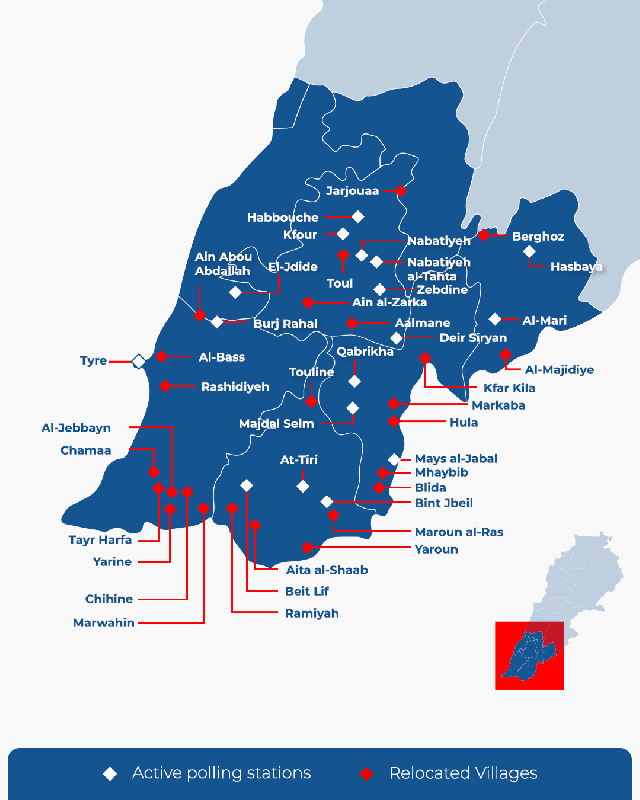
As municipal elections approach in Lebanon, war-scarred villages along the southern border are facing yet another blow: some will not be voting in their hometowns.
Following months of Israeli attacks that left parts of South Lebanon devastated and displaced thousands, the Ministry of Interior has relocated polling stations away from frontline villages to safer urban areas, primarily Tyre, Nabatiyeh and nearby towns.
A Shifting Plan: From Return to Relocation
The Ministry’s original election roadmap assumed that displaced residents would return to vote in their home villages—a plan that aimed to preserve democratic rights amid destruction. Some villages that have been relocated were listed in early voting maps as active polling sites.
But reality intervened.
With homes destroyed, roads crumbled and Israeli shelling ongoing in some areas, the Ministry revised the plan. Security threats and logistical obstacles—including the need for election workers to stay overnight in dangerous zones—made in-village voting untenable. One by one, polling stations in vulnerable towns were reassigned. Most have been moved to Nabatiyeh, Tyre or neighboring towns where many displaced residents have taken shelter.
Full List of Relocations
The war’s impact on polling logistics extends across the South. These are the confirmed changes:

Mouhafaza of Nabatiyeh:
- Toul → Kfour
- Maroun al-Ras → Bint Jbeil
- al-Majidiye → al-Mari
- Berghoz → Hasbaya
- Kfar Kila → Nabatiyeh al-Tahta
- Markaba → Habbouche
- Ayta al-Shaab → al-Tiri
- Hula → Zebdine
- Jarjouaa → al-Jdide
- Blida, Mhaybib → Nabatiyeh
- Touline → al-Jdide
- Aalman → Deir Siryan
-
Mouhafaza of South Lebanon:
- al-Bass, Rashidiyeh, al-Jebbayn, Chamaa, Chihine, Tayr Harfa, Marwahin, Yarine → Tyre
- Ain Abou Abdallah, Ain al-Zarka → Burj Rahal
Election Preparations
Governor Houwaida al-Turk confirmed that election preparations are in full swing across Nabatiyeh, Marjayoun, Bint Jbeil and Hasbaya, with new directives to ensure security and transparency. An elections operations room was set up in Nabatiyeh, and security forces—in coordination with the Lebanese Army—will be deployed at all polling stations, especially those hosting voters from multiple villages.
What Comes Next
As residents of southern Lebanon prepare to cast their votes—often far from home—the logistical decisions surrounding these elections are becoming as political as the elections themselves. For many, the right to vote in their own town is more than a logistical detail; it’s a question of dignity, memory and belonging.
The Previous Vision of Megacenters
This fragmented logistical scenario stands in stark contrast to the idea of centralized megacenters for voting—a solution that the Amal-Hezbollah duo rejected. The two parties opposed the proposal to allow displaced voters to cast their ballots in major urban centers like Beirut.
Instead, they opted to relocate polling stations to towns near the devastated villages and thus, a multitude of mini-megacenters was created across multiple villages in southern Lebanon.




Comments